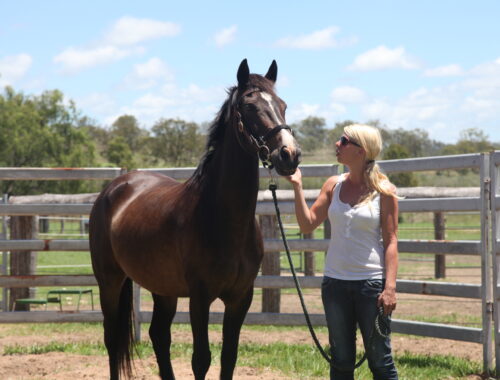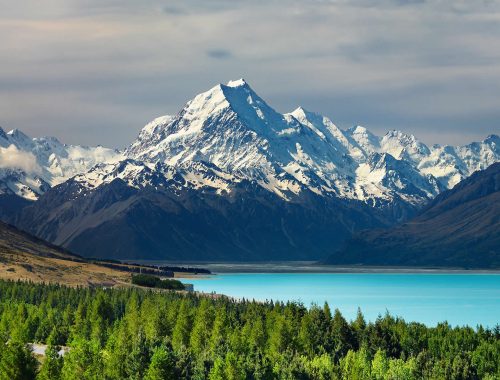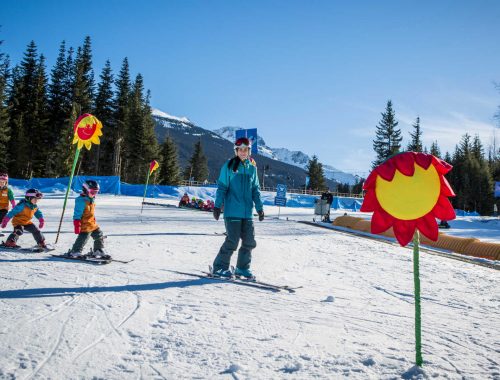As well as offering paid farm work in Australia, you’ll get a weekend in the city, a farm training course and all of your admin, transfers, and activities organised. There are up to 12 people from over 30 countries taking part each week so a great chance to meet loads of travelling buddies. Earn money straight away to fund your travels, with the option of coming back for a second job.
Duration: 3 months – 1 year
Dates: Every week except over Christmas and New Year
Arrival: Thursday
Eligibility: From a reciprocal country eligible for a 417 or 462 visa. Must have a driving licence and some practical experience.
Age: 18-35
Share with friends...
Highlights
- Kick start your Aussie experience with 4 nights in buzzing Brisbane
- Learn the ropes of Aussie farm work for 5 fantastic days on our outback training adventure
- Secure your spot in the outback job scene effortlessly through our 12-month job support program
- With accommodation and meals included in most job placements it’s the ideal way to save money for some Aussie travels and adventures
- Ranch work is one of the few ways you can secure a second Working Holiday Visa and extend your time in Oz – awesome!
Explore Profitable Opportunities in Agricultural Employment!
If you’re looking for ranch work in Australia, this program offers support for those looking from an intrepid adventure! A farm training programme with full admin provision for life in Australia is followed by a guaranteed paid job. Experience working in the real Australian outback and save money to fund your travels thereafter. If you want to work for the majority of the year, no problem! You will have job support for the full 12 months of your working holiday visa.
Finding Australia farming jobs can be tough when you head out alone on an Australian Working Holiday visa. Oyster offers a paid work programme that opens the door to outdoor jobs all over rural Australia. This fantastic 5-day farm training course will familiarise you with skills needed to work on farms, cattle stations and equine studs.
You will get to grips with:
- safely operating tractors
- riding horses
- driving dirt bikes
- working with livestock
- constructing fences
- general farm work tasks and basic vehicle maintenance
- navigational skills
The training farm is certainly a highlight of the programme and an experience that you will remember for years to come. It combines learning new skills with lots of fun. With almost 2000 employers across Australia on the job-finding database, your first job is guaranteed. You will receive plenty of support and advice during your training week to help ensure you choose a job that will suit your desires and abilities. Help is also provided if you decide to look for a subsequent job later on.
Rural Australian employers expect hard work and a positive attitude, you will be set up with an employer for between 3 and 6 months. You will be paid around at least the minimum wage per week, plus free food, accommodation and most of your living expenses. This means you will have a great opportunity to save money following your paid job to enjoy backpacking Australia and beyond (take home can vary of course but no less than $580 per week).
- When you arrive you will transfer to Brisbane where you will spend 4 nights in a vibrant city hostel
- You will then transfer to the farm where you will be staying in traditional homestead accommodation in dorm rooms for the following 4 nights
- On Friday you will transfer to Brisbane for one night’s hostel stay
- Working with over 2,000 employers, it is impossible to say exactly what your accommodation will be like, but you can expect it to be basic yet sufficient for your needs. Some farmers provide homestead accommodation whilst others will have cottages, caravans or camping facilities. Before accepting a job you will be given information about the accommodation so there should be no surprises
- Food is not included in Brisbane but once you arrive at the farm, 3 meals a day are provided
- The food is usually provided at the job, or you will be given a budget/higher wage to compensate this
Travel arrangements
Airport: Brisbane (BNE)
Arrival day: Thursday between 8 – 10 am
Transfer details: When you arrive at the airport you will be met the greeter who will direct you to the transfer bus to Brisbane YHA
Departure day: Leave the training farm on Friday to go to Brisbane where you will spend one final hostel night before travelling out to your job
Supporting You

Once in Australia, the support continues with our partners at the farm. They provide the training, admin set up, job matching and ongoing advice. Australia is an easy place to adjust to, but there may still be times when you want a bit of advice or help. With large time differences and participants all over the country, Will and Jules and their team are well placed to be your first point of reference. Both they, and us in the UK, are contactable 24/7 should you need it. It’s a big country, but you won’t be on your own!
Included
- Access to your own personal ‘My Oyster’ account – our online portal where you can find out much more about the program and manage your booking
- Dedicated contact time with an experienced destination manager to discuss the project, answer any of your questions and for us to find out more about you
- Help and advice from our UK office before arrival and whilst you are away
- Pre-departure information covering medical, safety and project advice
- Gold level, 24/7 Pharos crisis management and incident support cover
- Financial protection: ATOL (if we book your flights).
- Thorough orientation on arrival
- In-country support
- Accommodation (see the ‘accommodation’ section above for details)
- Advice on visa requirements
- Oyster plants a tree in Africa with TreeAid to help reduce the impact of global carbon emissions
- Airport collection, transfer to Brisbane and transfer to the training farm
- An excellent and well-regarded 5 day farm training course, food, work hat and Wi-Fi access all included
- Guaranteed first jobs and subsequent jobs throughout your year in Australia should you want them
- Help setting up an Australian bank account before departure
- Medicare and Tax File Number included and arranged for you
On your return:
- References (on request).
Not Included
- Flights – as an ATOL bonded company, Oyster can book flights for you
- You need a valid passport that meets the requirements of the country you will be travelling to
- Insurance (covering your time with Oyster and any planned independent travel)
- Any costs associated with changing your return flight date if you need to
- Independent travel costs
- Home country travel costs
- Spending money for additional trips, food and entertainment
- Cost of your Working Holiday Visa. You must be eligible for a Working Holiday visa 417 or Work and Holiday visa 462 (aged between 18-30/35 and a permitted nationality for the visa. See here for work visa eligibility criteria)
- Have access to approximately $1000 Australian dollars in cash or on card when you arrive (we recommend you have extra emergency funds) – this is for travel costs, work clothes and food and tourist activities in Brisbane
- Cost of travel from the training farm to the job
- Proof of funds to support a return journey if necessary (when applying for your visa – $5000 AUD )
- Living costs (hostel and food costs) when not working i.e. when travelling over several days to a job or if you are in between jobs
Project story
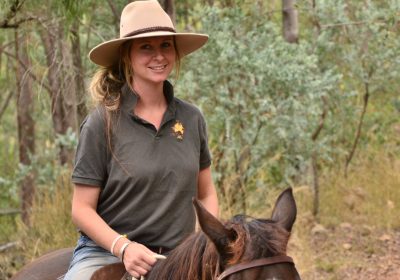
“I managed this project for 5.5 years before relocating back to the UK to join the Oyster team. This programme is still very close to my heart so if you would like detailed information or advice, then please just ask! ” says Georgie, Director, specialising in Australia and New Zealand
More Information
An Australia farm job is remote and the work that needs doing is varied. You could be mustering sheep and cattle, doing essential maintenance around the farm, harvesting crops or looking after horses. There are also inside/outside roles such as station cooking, au pairing for a family or working in a rural pub.
You’ll need to be ready to get stuck in and to work outdoors in all weather – no whingeing Poms, please! It’s tough, physical work, but you’ll come back stronger than when you left- in every way!
The typical day will start around sunrise and comes to a close at sunset. A typical day might look like:
05.30 – Light Breakfast
05.30 – 08.30 Morning tasks then a more substantial breakfast
09.30 – 13.00 Later morning tasks
13.00 – 14.30 Lunch
14.30 – 18.00 Afternoon tasks followed by dinner
The tasks you do each day will vary depending on where you are working and what job you have. Those mustering cattle might be out all day (and camping at night). Alternatively, those working as general farm hands could find themselves doing essential chores such as tractor driving, mending fences, milking or feeding animals. Lunch breaks tend to be long to avoid the heat, and can vary depending on the urgency of the work.
In the evening you’ll come in from work, get washed and enjoy eating and having a beer with the other staff. Most people then collapse into bed, ready to start all over again the next day!
This programme suits people who like to work hard and don’t mind getting dirty. You should be looking to experience life in rural Australia and be ready for the challenges that this may bring. You should have a positive attitude, be determined, and get on easily with others in a team. A participant must be physically and mentally fit to do farm work.
Minimum requirements:
- Aged between 18-30/ 35 (UK)
- A full (not provisional) driving license
- Practical work experience: either paid or voluntary
- You need to apply at least 1-2 months before you go, but we recommend booking at least 4 – 6 months in advance to get your preferred Thursday
- Work visas can take anything from between 1 and 8 weeks so it is best to start the process as soon as you can
- If you are keen to go between August and October or January and February, you should book well in advance as these are popular times to join
Northern parts of Australia experiences wet and dry seasons. The wet season is from November to May and is the hotter part of the year here with the threat of storms. January to March can be particularly wet and the temperatures are much hotter averaging between 30ºc and 40ºc with the addition of humidity.
The dry season is between May and October with temperatures averaging 20ºc. There are clear blue skies and little rain. Further south, temperatures and humidity is milder and winters (late May to August) can feel quite cold with snow in some parts of Victoria and New South Wales! Read our blog about how Aussies celebrate Christmas in July.
- Groups arrive in Brisbane on Thursdays throughout the year
- You’ll be met on arrival at Brisbane International airport
- In Brisbane the team will organisation all your paperwork like medicare applications and tax file numbers
- On Monday morning you will transfer to the training farm
Farm work is a lifestyle and not measured in hours. You will be expected to work from sun up until sun down at least 5 -6 days per week. To work in farming you need to be as flexible as possible – animals don’t wait for people to get out of bed or understand public holidays.
If there is lots of cattle work to do, you may be camping out for 10 days in a row, or the harvest might need to come in before the rains. Both of these will mean all hands on deck. On the other hand, if it rains you may not work for 4 days until things dry up. You may get paid to sleep in a truck for 6 hours or drop the kids to school.
The real adventure is not knowing what you’ll be doing from day to day!
Before you arrive to Australia, the staff on the ground will be working hard to put a profile together for you, this will then be viewed by a database of trusted employers. The training farm has a dedicated job-finding website and almost 2000 employers have signed up to use this service.
Employers are constantly contacting the training farm with job offers and vacancies. In the evenings, after you have finished your training, you will call the employers to speak to them about their vacancies and ask any questions you might have.
Once you have secured a job, the team at the farm will organise transport to get you to your new job, the cost of this will be an additional expense which is incorporated within the recommended spending money budget.
Jobs can vary depending on job market availability and your experience. Here are some of the industries that you could be working in.
- Cattle stations, sheep stations, broadacre arable farming
- Tractors and other large machinery (graders, dozers, headers, operation with various implements)
- Fencing, spraying, weed control
- Training establishments, race horses, polo
- Equestrian disciplines, show jumping, dressage, eventing, endurance riding
- Breeding establishments, stud farms
- Cooking, cleaning, domestic support work
- Childcare / au-pair
- Station or camp cook
- Hospitality work in outback pubs, hotels, host farms, museums and restaurants
Because of the remote nature of the farms, people with special dietary requirements (eg: vegans) might find it hard to ensure they get everything they require for a balanced diet.
Australia is a very large. You could be offered a job anywhere in the country so it is essential that you are prepared to travel and work in a remote location. You must also have the funds to travel to that job from the training farm. We recommend that you have at least $900 available when you arrive depending on how much you are planning to see and do in the city over the first weekend.
You can expect to start on the minimum wage. Under the Fair Work Act, workers aged 18 may be paid 80% of the adult minimum wage, and those aged 19 may be paid 90% of the adult rate.
As of 1 July 2025, the national minimum wage in Australia is $24.50 per hour or $931.50 per week (before tax). On top of this, employers must also pay superannuation contributions of 12% of your ordinary earnings into your super fund.
After tax and deductions, you’ll usually take home around $420–$480 AUD per week.
Most of our employers pay a minimum of $500 AUD per week after tax, with food and accommodation provided. With these expenses covered, this is significantly higher than average disposable income for workers on minimum wage.
The average participant is able to save over $6,500 AUD in a three-month working period.
To be able to qualify for a 417 or 462 work visa, you must be between the ages of 18 and 35, and hold a passport from one of the eligible countries stated by the Australian Embassy.
It is important that your level of English is sufficient to be able to operate safely on a farm. When working, it is vital that you understand verbal instructions to ensure that you and others are safe.
One of the reasons that we telephone interview you before signing you up to the programme is to ensure that you are able to communicate well enough in English.
- You should get one or two days off per week (check this when arranging your job), but this might not be the weekend
- Relaxing with a beer after work around a camp fire is the usual protocol!
- During your time off you might make the occasional trip into town for some time of the farm
- Some farms have a pool or a waterhole for swimming
- Look out for any traditional rural events, such as rodeos and livestock shows for the full outback experience!
Yes this is possible. Please be aware that you will need to have a similar level of farm skills to be offered a job on the same farm, and this is not guaranteed. If your skill level is very different, you will need to compromise and go with the job that matches the skills of the lesser-skilled participant. It can take an extra week or two to find work if you are in a pair or more. The same is true for couples as there are less accommodation options for them. Flexibility is key!
Each week there is a group of around 8-12 people from around the world. You will make good friends over the training period and many people stay in touch after they have gone off to their jobs. You may even think about travelling together after your jobs finish.
You should visit your doctor or travel nurse to find out what vaccinations you will need. Typically you will need your routine travel vaccinations to be in date and it is essential that your tetanus is up to date. Australia does not require any additional vaccinations to Europe.
For any more information, including entry requirements related to Covid-19, please see the Fit for Travel website or the UK government’s travel advice page for Australia.
This will vary depending on the exact location of your job but there will always be medical facilities in a town or city near by. The farms that you will working with will have procedures for emergencies. It is possible to get an air ambulance to remote locations.
The hospital closest to the training farm is 15 minutes drive.
Typically people are offered two or three jobs whilst they are on the training farm. The staff at the training farm will help you to decide which job is best for you. Jobs tend to be offered to you based on your experience.
No specific jobs are ever guaranteed. If you have significant riding experience it is likely that you will offered work riding. Many of the employers we work with have very expensive and often difficult horses so they have to make sure they have the right people riding them. Horse riding jobs include caring for the horses and yard work.
The horse work available includes jobs on cattle stations, polo yards, show jumping stables, racing studs and training facilities. Jobs in certain fields are more likely to come up during certain times of the year but you must be prepared for all scenarios as we can never predict elements such as the Australian weather that can dictate the job market.
Assuming you secure a job whilst at the training farm you will usually start on the Monday following the training.
This leaves the weekend in between to travel out to your job.
Most jobs last for about 3 months, sometimes longer. It is possible to work on farms for up to 6 months if the work is there to be done.
You are welcome to apply for further jobs throughout the year. Please be patient with your second job however as things can take a little longer when you are no longer at the training farm.
You should always give your job a couple of weeks to settle in with 110% effort on your part. If you do want to change to another job, one can be found for you, although you should be aware that this may not be immediate and you will need to be in mobile coverage to receive job offers.
If you walk out on the job then it is unlikely that you will be offered another. Communication is key and if you aren’t getting on well with your job you must let our partners in Australia know and they will be able to help you.
Most farm work jobs on offer are in the right area code to qualify for the second visa. If you are not suited to outdoor work and are looking for hospitality or childcare positions then the second year visa is unlikely to be available to you.
It is essential that you have a full driving licence to be able to work on farms in Australia. On the farm training programme you will be fully trained up for all aspects of farm work- and this includes driving. The ability to drive a manual vehicle not only makes you more employable, it also means you are much safer to work on farms in Australia. Here are a few reasons why:
- The majority of the jobs on offer are on properties that can only be reached by car. Employers will always require their workers to drive somewhere, be it in or around the farm. A major job role for our workers often involves running errands in the local area or even driving for several hours to the nearest town
- The ability to drive is essential when dealing with machinery. Moving farm equipment around the farm yard, taking fencing items out for repair work and moving livestock is also a vital part of everyday life on a station
- Holding a driving licence means that you have reached a certain level of comprehension of how cars and gears work. Knowledge of using gears is important when driving two-wheeler motorbikes, four wheeler quad bikes or tractors. These are not skills that we expect you to have before you arrive, but they are things that you will do on the training farm. Without a licence, it is not as safe to be driving such machines
- The farmers that we work with are professionals, looking to employ some good quality workers. They are interested in people with a wide range of skills, and driving is one of those that is the most important
- Safety, safety, safety. Using machinery and driving when you do not have a licence is dangerous. We do not want you or the employers to be put in compromising situations
On application to this programme, it is not essential to already have your driver’s licence. However, you must pass your test before departure, otherwise your place on the farm will be postponed. Driving is a great skill to have so this is a great opportunity to motivate yourself to pass your test!
Being a smoker poses a few problems to farmers in Australia. You must let us know if you are a smoker or not- if you fail to do so, it is harder for us to find you work. The reasons for this are:
- Smoking poses a fire risk- in a country that suffers from devastating forest fires
- Smokers tend to take more breaks than non-smokers
- As you are living and working on the farms, you may be in contact with farmers’ children. They often do not like smoke around their kids or in their accommodation.
The Aussies love their meat. Expect fairly simple meals that will fill you well for all the hard work you will be doing. There is usually a beer to accompany most of what you eat! Other than that, you will find all the typical western foods with a few extras thrown in such as vegemite and milo!
Whilst the much-travelled parts of populated/city areas along the East Coast are very accommodating with dietary requirements, outback Australia often doesn’t get such luxuries.
Many farms are self-sufficient and grow their own produce. As many farmers breed animals for meat as their livelihood, vegetarianism is often something that is just not understood. With other dietary requirements (eg celiac, lactose intolerant) the story can be the same, and station cooks just won’t have the resources or time to make separate meals for you.
Food is simple and traditional and often eaten when the work is done. The farms are usually remote and so food is expensive and difficult to access. Waste is a huge concern and when it comes to being ‘picky’ about your food or leaving things on your plate, many simply won’t be able to understand it. We would encourage you to be flexible.
At the training farm, if you are vegan or have very specific dietary requirements we suggest you take your own snacks and food from Brisbane. The farm can buy separate food for you at $25 (approx £12 per days – 4-5 in total).
This will depend on where you end up working and where you are staying. If there is limited wifi at the property there will be internet cafés in nearby towns.
Although mobile coverage in Australian cities is excellent, it can be very poor in the outback. The training farm can provide you with a sim card for a network offering the best local coverage, but you may not have great reception on your farm.
Do bring an unlocked mobile phone if you would like to do this. All of the farms will have a landline that you will be able to use to call home and most will have internet which the farmers may let you use. You can give your family the farm’s landline number if they need to get hold of you in an emergency.
You will need to wear long sleeved shirts and thick trousers- these may seem hot but they will protect you.
Non-laced boots are VERY important. Laces getting caught up in machinery/ stirrups is a hazard.
Whilst the training course is an introduction to farm work, it is also above all a safety course to make sure you are prepared for work on Australian farms. Even if you are well skilled it is likely that you will find that the way things are done in your home country may be very different from the ‘Australian’ way. You are shown how things are done here and how your employer will expect you to work.
The course is also designed so that we are able to assess the skills that you say you have and match you to the right employer. We also assess your level of English to make sure you are safe enough to be sent to paid positions. Your manners and your attitude to work determine which employers we will match you to.
Eastern Australia is 10 hours ahead of GMT (GMT +10) but if your job is located slightly further afield then this might vary
Australian electrical appliances operate on 240v at 50hz but the socket outlets are not compatible with the other countries’ plugs. This means you will need a specific Australian adapter.
Supervision will be fairly intensive during your time at the training farm, where you will receive thorough training from leaders on farm work activities. During non-working hours you will not be supervised directly, but there will always be staff and other participants around to help.
Staff at Oyster’s head office and in-country will be responsible for your safety and welfare while you are on the programme. This will start from the moment you are met at Brisbane airport until the end of your training course. However, please bear in mind that your stay at Noosa will be largely unsupervised. This means that, while we have responsibility for arranging safe transport and accommodation and will provide help and support in an emergency, you must take responsibility for making safe decisions during your time there.
Once you leave the training farm, you will be outside Oyster’s jurisdiction although we can continue to provide help and support if you need it. Our briefing provides you with plenty of advice for making safe decisions while living and travelling in Australia.
Project Reviews
 “Oyster Worldwide helped me every step of the way for the paid farm work programme. I had many questions and Georgie was very helpful in answering any of them. I found the entire process very smooth and I’m very happy to be in Australia. Georgie really made my experience coming to Australia easy. I decided to do the farm work experience in Australia very last minute and I was able to easily get a spot in a group and I am now very happy working on ...
“Oyster Worldwide helped me every step of the way for the paid farm work programme. I had many questions and Georgie was very helpful in answering any of them. I found the entire process very smooth and I’m very happy to be in Australia. Georgie really made my experience coming to Australia easy. I decided to do the farm work experience in Australia very last minute and I was able to easily get a spot in a group and I am now very happy working on ...
Got a question or want to chat to Project Manager Georgie who has first-hand experience of the project? Call +44 1892 771 977 or email: – [email protected].
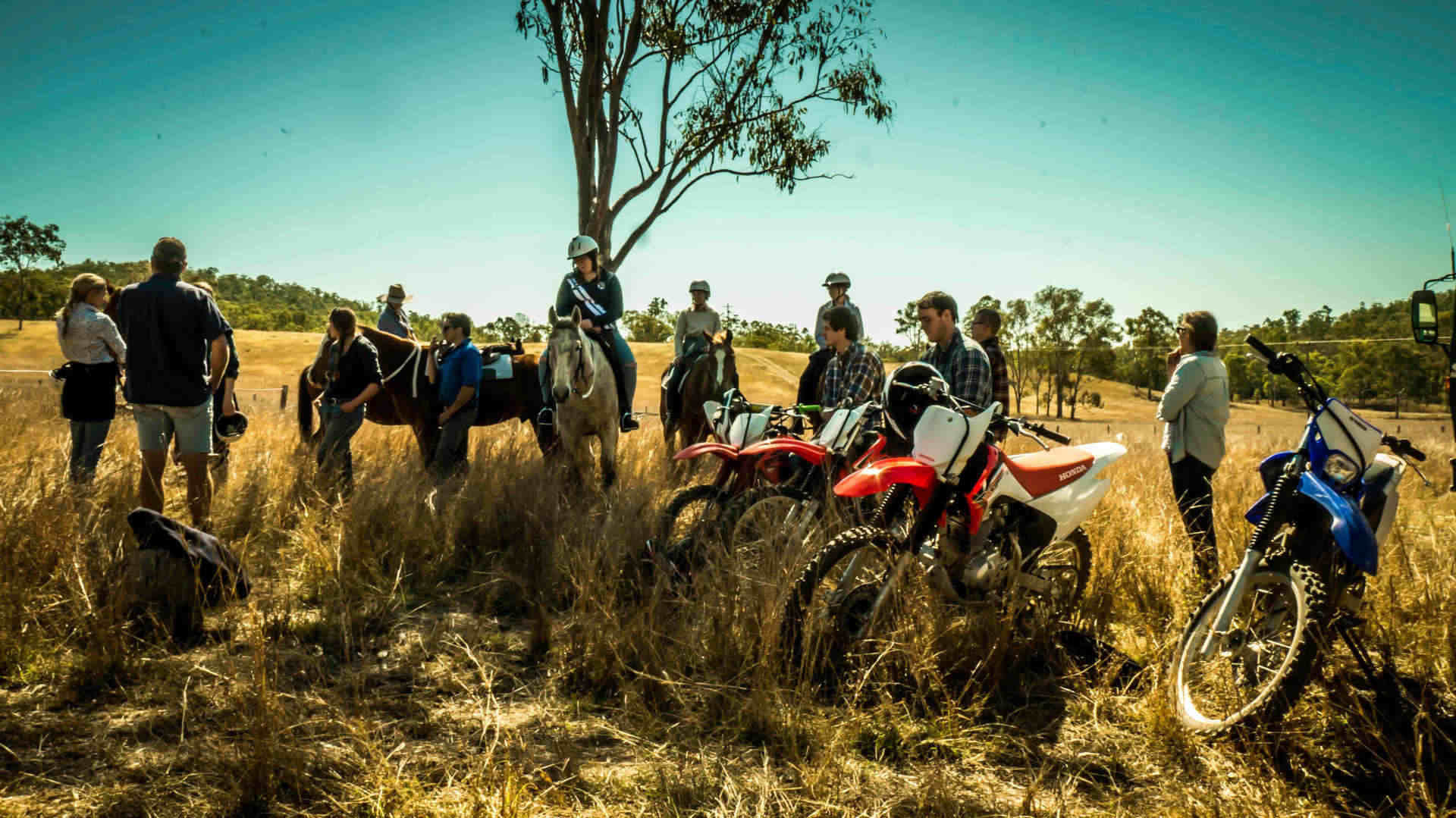
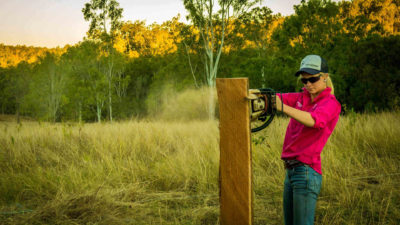
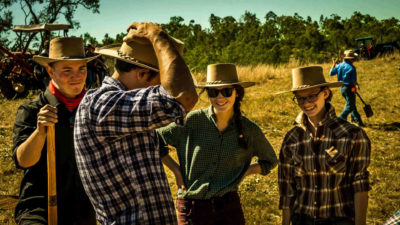
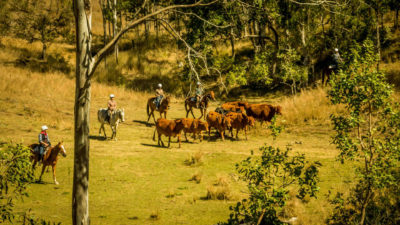
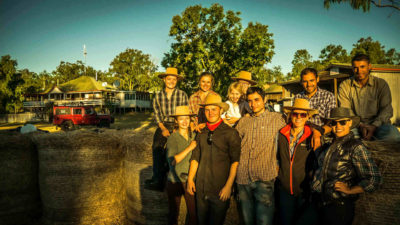
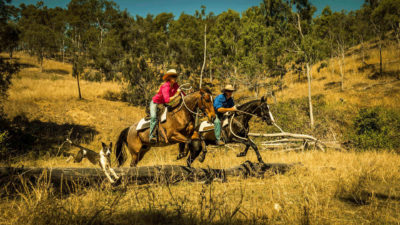
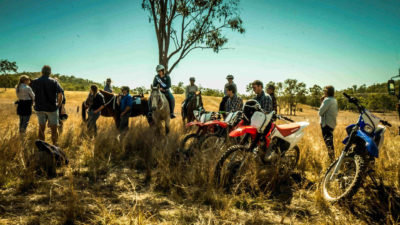
 “I’m doing good, the first week went great and the training farm was wonderful. Brisbane was beautiful and I was able to do a lot of cool stuff with the people I met through the program. The training farm was very helpful and I learned a lot that I didn’t know before. Now I am at my job at in north Queensland, mustering and branding cattle as well as doing some maintenance work. It’s been a lot of fun and I’m having a great time!”
“I’m doing good, the first week went great and the training farm was wonderful. Brisbane was beautiful and I was able to do a lot of cool stuff with the people I met through the program. The training farm was very helpful and I learned a lot that I didn’t know before. Now I am at my job at in north Queensland, mustering and branding cattle as well as doing some maintenance work. It’s been a lot of fun and I’m having a great time!”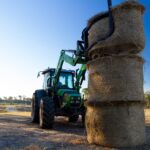 ” Hi Georgie! I’m great thank you, how are you? Renewed my visa for the second year, worked in Tassie on a dairy, near Toowoomba as an ecologist, near Mackay on a station and then up near Julia Creek as a tractor operator. It’s been absolutely amazing. Hopefully next year I’ll be heading to New Zealand where I’ll be applying for a green list visa as a dairy farmer so I can get my PR sorted over there. That’s all really, met some amazing people who I really want to catch up with in the future 😊 Many thanks for your message!”
” Hi Georgie! I’m great thank you, how are you? Renewed my visa for the second year, worked in Tassie on a dairy, near Toowoomba as an ecologist, near Mackay on a station and then up near Julia Creek as a tractor operator. It’s been absolutely amazing. Hopefully next year I’ll be heading to New Zealand where I’ll be applying for a green list visa as a dairy farmer so I can get my PR sorted over there. That’s all really, met some amazing people who I really want to catch up with in the future 😊 Many thanks for your message!”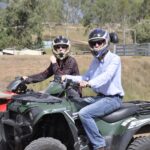 ” Hi Georgie, greetings from Tasmania! The past week has been good. I really enjoyed my time over at the training farm and it helped me learn some new things as well as refresh my memory with some farming work too. I’m headed off to a job in NSW at the end of next week so I got some time to travel a bit. Needless to say it’s been a great experience thus far, thanks for checking in!”
” Hi Georgie, greetings from Tasmania! The past week has been good. I really enjoyed my time over at the training farm and it helped me learn some new things as well as refresh my memory with some farming work too. I’m headed off to a job in NSW at the end of next week so I got some time to travel a bit. Needless to say it’s been a great experience thus far, thanks for checking in!”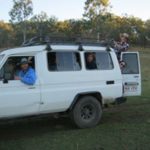
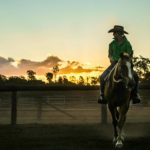 “The first days were brilliant !So happy with the group I’ve got we’re all keeping in contact! The training week was such a laugh!! I’m on my first day at my new job I arrived here Saturday afternoon. I got the job I wanted doing mustering which won’t start for a month or so but got loads of horses to start backing and got a rodeo to set up for two weeks time as they are hosting one! So pretty excited about that! Xx ”
“The first days were brilliant !So happy with the group I’ve got we’re all keeping in contact! The training week was such a laugh!! I’m on my first day at my new job I arrived here Saturday afternoon. I got the job I wanted doing mustering which won’t start for a month or so but got loads of horses to start backing and got a rodeo to set up for two weeks time as they are hosting one! So pretty excited about that! Xx ”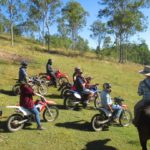 “I’m loving it so far! The training camp was amazing and very interesting! I’ve got the weekend in Brisbane before flying to Canberra to work in Rugby on a sheep farm! Thank you so much for all the help with this it’s been greatly appreciated ”
“I’m loving it so far! The training camp was amazing and very interesting! I’ve got the weekend in Brisbane before flying to Canberra to work in Rugby on a sheep farm! Thank you so much for all the help with this it’s been greatly appreciated ”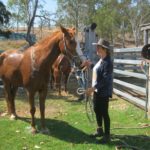 “Everything goes well in Australia for me. I really enjoyed this introduction to the Australian farm life. I am now at a riding stables. I help cleaning the stables, feeding the horses, getting them ready for show jumping, and so much other things. I even may ride tomorrow! There is always something else to do. I’m glad to know that I will sleep well on nights thanks to hard work during the day. Thank you! ”
“Everything goes well in Australia for me. I really enjoyed this introduction to the Australian farm life. I am now at a riding stables. I help cleaning the stables, feeding the horses, getting them ready for show jumping, and so much other things. I even may ride tomorrow! There is always something else to do. I’m glad to know that I will sleep well on nights thanks to hard work during the day. Thank you! ”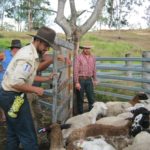 “Just got back to Brisbane after the training week, absolutely loving it and have a job lined up, great staff at the training farm learnt lots, a few bumps and bruises along the way but feel really prepared for the coming job. Once again absolutely loving it, have a flexible ticket so I might not be coming home for a year or so!”
“Just got back to Brisbane after the training week, absolutely loving it and have a job lined up, great staff at the training farm learnt lots, a few bumps and bruises along the way but feel really prepared for the coming job. Once again absolutely loving it, have a flexible ticket so I might not be coming home for a year or so!”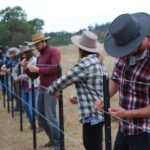 “Everything is going great and was great. I have accepted a job traveling Australia with a company that does contract mustering and I am looking forward to it. I should have at least monthly access to WiFi or service so I’ll try to keep you updated. Thanks for helping setting up this experience!”
“Everything is going great and was great. I have accepted a job traveling Australia with a company that does contract mustering and I am looking forward to it. I should have at least monthly access to WiFi or service so I’ll try to keep you updated. Thanks for helping setting up this experience!”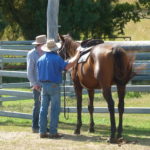 “The training farm was great and I really enjoyed it! I had loads of fun and learnt a lot as well. I’m going to a big station in Western Australia, and I’m really looking forward to it. Thanks for helping sort all this out. I really appreciate it!”
“The training farm was great and I really enjoyed it! I had loads of fun and learnt a lot as well. I’m going to a big station in Western Australia, and I’m really looking forward to it. Thanks for helping sort all this out. I really appreciate it!”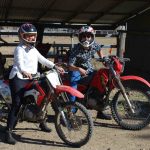 “I had a really good experience at the training farm. The instructor was informative and fun. They found me a job in Harden NSW working with horses. I’m currently en route there now!”
“I had a really good experience at the training farm. The instructor was informative and fun. They found me a job in Harden NSW working with horses. I’m currently en route there now!”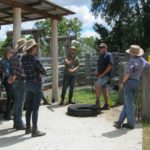
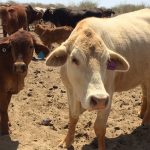 “Yes, it’s like already I have a lot of experience from being here. So now I am enjoying this a lot, and is precisely the way I thought it would be. The training week was soo much fun, and I learned a lot, also riding a horse, something I have never done before, and still find it a bit scary… but in a good way! ”
“Yes, it’s like already I have a lot of experience from being here. So now I am enjoying this a lot, and is precisely the way I thought it would be. The training week was soo much fun, and I learned a lot, also riding a horse, something I have never done before, and still find it a bit scary… but in a good way! ”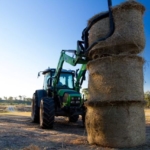
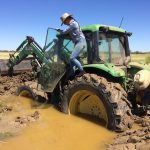 “Oyster Worldwide gave me the affordable opportunity to make my dreams come true, and played a very important role in starting the beginning of the rest of my life in a responsible and organized way, with professional and personal support. Thank you Oyster! ”
“Oyster Worldwide gave me the affordable opportunity to make my dreams come true, and played a very important role in starting the beginning of the rest of my life in a responsible and organized way, with professional and personal support. Thank you Oyster! ”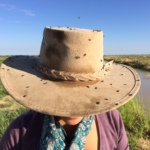

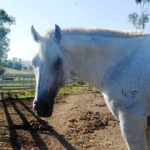 “I am having a fantastic time here! We went mustering, I got told I looked like ‘a proper outback cowgirl’! I had such fun! Now I am in Brisbane and I am going to head to my job on Monday. We are going to a cattle yard, it sounds great and I am very excited! The whole experience has thus far exceeded my expectations!”
“I am having a fantastic time here! We went mustering, I got told I looked like ‘a proper outback cowgirl’! I had such fun! Now I am in Brisbane and I am going to head to my job on Monday. We are going to a cattle yard, it sounds great and I am very excited! The whole experience has thus far exceeded my expectations!”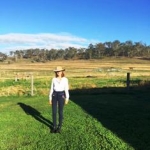 “I am on the training farm at the moment, not Spring Brooke, the one near it, with Justin, and am loving it! I love the horse riding. Yesterday I got myself a job on a polo farm which I am very happy with. Noosa was so good and a lovely introduction. I’m looking forward to the new adventures to come :)”
“I am on the training farm at the moment, not Spring Brooke, the one near it, with Justin, and am loving it! I love the horse riding. Yesterday I got myself a job on a polo farm which I am very happy with. Noosa was so good and a lovely introduction. I’m looking forward to the new adventures to come :)”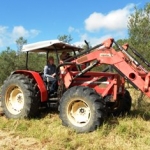 “I’m now working with about 70 horses just outside Melbourne and I’m starting to get a real feel for Australia. I’m gradually adapting to the heat but I still find myself sweating gallons regularly and that showers provide, at a push, 5 minutes of cleanliness. The training farm was amazing fun and I had a great time with the many nations of people that were there. I’ve learnt how to ride horses and bikes, use chainsaws and tractors, castrate bullocks and form a surprisingly grammatically correct sentence made almost solely out of swear words. It was very hot and hard work but they treated me very well and it prepared me for what I’m doing now.”
“I’m now working with about 70 horses just outside Melbourne and I’m starting to get a real feel for Australia. I’m gradually adapting to the heat but I still find myself sweating gallons regularly and that showers provide, at a push, 5 minutes of cleanliness. The training farm was amazing fun and I had a great time with the many nations of people that were there. I’ve learnt how to ride horses and bikes, use chainsaws and tractors, castrate bullocks and form a surprisingly grammatically correct sentence made almost solely out of swear words. It was very hot and hard work but they treated me very well and it prepared me for what I’m doing now.”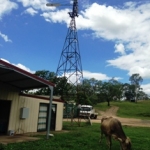 “My first week has been everything that I hoped it would be. I met amazing people, learned a lot about farm life in Australia and gained some experiences that I cherish. I am now staying in hostels in Brisbane, and tomorrow I will move to Adelaide until Tuesday, when I will meet with my employer.”
“My first week has been everything that I hoped it would be. I met amazing people, learned a lot about farm life in Australia and gained some experiences that I cherish. I am now staying in hostels in Brisbane, and tomorrow I will move to Adelaide until Tuesday, when I will meet with my employer.”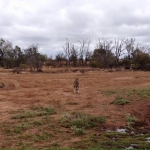 “This (training) week has been fantastic! I have loved every minute and learnt so much with fantastic people. I’ve been mustering, learnt to ride a motor bike and all sorts of other things. I’m off to my new job now. Thanks for all the work you’ve done organising this.”
“This (training) week has been fantastic! I have loved every minute and learnt so much with fantastic people. I’ve been mustering, learnt to ride a motor bike and all sorts of other things. I’m off to my new job now. Thanks for all the work you’ve done organising this.”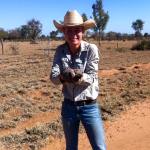 “Work hard. Try to please your employer and they will see and appreciate your efforts to be a good worker. Be patient if the job doesn’t seem like what you wanted, there is a good chance it will grow on you if you keep an open mind.”
“Work hard. Try to please your employer and they will see and appreciate your efforts to be a good worker. Be patient if the job doesn’t seem like what you wanted, there is a good chance it will grow on you if you keep an open mind.”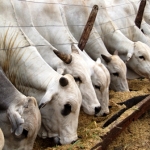 “Absolutely loving it at the training farm! I have already ridden a horse, been on dirt bikes, learnt to use a chainsaw etc., It’s been absolutely fantastic!!!”
“Absolutely loving it at the training farm! I have already ridden a horse, been on dirt bikes, learnt to use a chainsaw etc., It’s been absolutely fantastic!!!”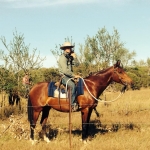 “I’m really enjoying my time on the cattle station in Queensland. It’s all going really well. I’ve been to a couple of rodeos and have even ridden a bull which was an experience! I have been working here for 4 months and will be applying for my second year visa.”
“I’m really enjoying my time on the cattle station in Queensland. It’s all going really well. I’ve been to a couple of rodeos and have even ridden a bull which was an experience! I have been working here for 4 months and will be applying for my second year visa.”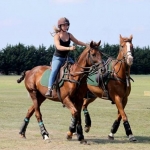
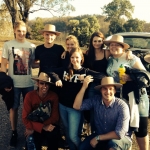 “I can’t believe how fast these last 3 months have gone! I have had such an amazing time working, living and partying around Scone. I have enjoyed my job so much and I have met some amazing people along the way!”
“I can’t believe how fast these last 3 months have gone! I have had such an amazing time working, living and partying around Scone. I have enjoyed my job so much and I have met some amazing people along the way!”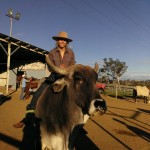 “It’s been great thanks! I worked as a domestic worker on a cattle station but am hoping to do some jillaroo work (with horses and bikes) when I go back! I worked for about 4 1/2 months and then came home for Christmas after visiting Brisbane again. Thank you!”
“It’s been great thanks! I worked as a domestic worker on a cattle station but am hoping to do some jillaroo work (with horses and bikes) when I go back! I worked for about 4 1/2 months and then came home for Christmas after visiting Brisbane again. Thank you!”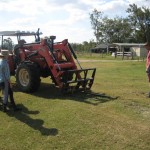 “I love it out here and I don’t know what I was nervous about. I have met amazing people who I will stay in touch with and meet back up again with to go travelling! The whole program was great. Rainbow beach was amazing. I’m settled in a job, it’s a family farm and I do general farm work and childcare! It’s really great. The house has a lovely pool and I get paid nearly $400 a week!”
“I love it out here and I don’t know what I was nervous about. I have met amazing people who I will stay in touch with and meet back up again with to go travelling! The whole program was great. Rainbow beach was amazing. I’m settled in a job, it’s a family farm and I do general farm work and childcare! It’s really great. The house has a lovely pool and I get paid nearly $400 a week!”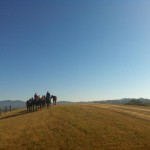 “One whole month since I left the UK and it’s been the best month of my life… I’ve already met some amazing people and made some lifelong friends, I never ever went to leave! I’m working at a polo stud as a groom, and I love it!”
“One whole month since I left the UK and it’s been the best month of my life… I’ve already met some amazing people and made some lifelong friends, I never ever went to leave! I’m working at a polo stud as a groom, and I love it!”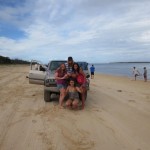 “Working with the racehorses was really good fun (definitely an experience). The people I worked with were amazing. Overall I had a really good time. The 4.30 starts were hideous at the time, but I got used to them and was rather sad to leave. I definitely intend to go back out there one day, either to study or just travel”
“Working with the racehorses was really good fun (definitely an experience). The people I worked with were amazing. Overall I had a really good time. The 4.30 starts were hideous at the time, but I got used to them and was rather sad to leave. I definitely intend to go back out there one day, either to study or just travel”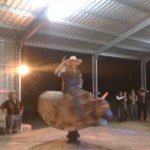 “If you’re not afraid of hard work, and have a good attitude, I couldn’t recommend it more. I learnt a staggering amount. To me there is nothing better than the sense of achievement after a day’s hard work and a good supper!”
“If you’re not afraid of hard work, and have a good attitude, I couldn’t recommend it more. I learnt a staggering amount. To me there is nothing better than the sense of achievement after a day’s hard work and a good supper!”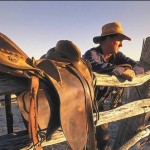 “I found it an amazing experience and I loved every minute of it. I don’t think I could have gotten more Outback than this.”
“I found it an amazing experience and I loved every minute of it. I don’t think I could have gotten more Outback than this.”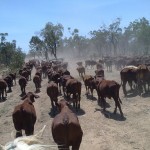 “I just want to say a huge Thank You to Oyster who helped me, your support was invaluable. My time in Australia was nothing short of life-changing. I stayed for the whole 6 months! I’m home a more confident, able person with some really awesome stories and a new path at Uni to contend with – I was so inspired by my experiences that I took to writing more and am now doing a degree in English.”
“I just want to say a huge Thank You to Oyster who helped me, your support was invaluable. My time in Australia was nothing short of life-changing. I stayed for the whole 6 months! I’m home a more confident, able person with some really awesome stories and a new path at Uni to contend with – I was so inspired by my experiences that I took to writing more and am now doing a degree in English.”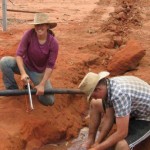 “I’ve had an extremely positive experience in Australia and would recommend you in the future to others. A huge thank you. I’m working on a cattle station/art studio in the Northern Territories and enjoying myself immensely.”
“I’ve had an extremely positive experience in Australia and would recommend you in the future to others. A huge thank you. I’m working on a cattle station/art studio in the Northern Territories and enjoying myself immensely.”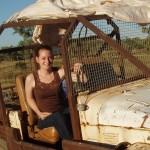 “Things are going really well over here. I am on my last day of training and have done lots of really cool stuff like driving a tractor. I am really enjoying it! The training course was great! It was a really fully packed week. The food we had was delicious and the farm is in a beautiful setting. The trainers were excellent too; very friendly and they made sure that you really understood. Overall a great programme!”
“Things are going really well over here. I am on my last day of training and have done lots of really cool stuff like driving a tractor. I am really enjoying it! The training course was great! It was a really fully packed week. The food we had was delicious and the farm is in a beautiful setting. The trainers were excellent too; very friendly and they made sure that you really understood. Overall a great programme!”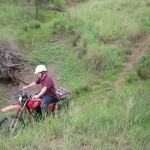 “I really enjoyed the course – driving tractors and bikes is great fun and the team there were very good… I would definitely recommend it to others, and regularly do just that when I meet backpackers in the city who are struggling to find work.”
“I really enjoyed the course – driving tractors and bikes is great fun and the team there were very good… I would definitely recommend it to others, and regularly do just that when I meet backpackers in the city who are struggling to find work.”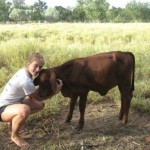 “The weekend at Rainbow Beach was great, a really good way to meet other people. I had so much fun that first week on the farm. We got to try a bit of everything. I enjoyed working there that much that I stayed for 5 months!!! When I finished I was quickly lined up with another job in the Snowy Mountains. It was so much fun and an even bigger bonus was that we got to go horse riding on our days off.”
“The weekend at Rainbow Beach was great, a really good way to meet other people. I had so much fun that first week on the farm. We got to try a bit of everything. I enjoyed working there that much that I stayed for 5 months!!! When I finished I was quickly lined up with another job in the Snowy Mountains. It was so much fun and an even bigger bonus was that we got to go horse riding on our days off.”